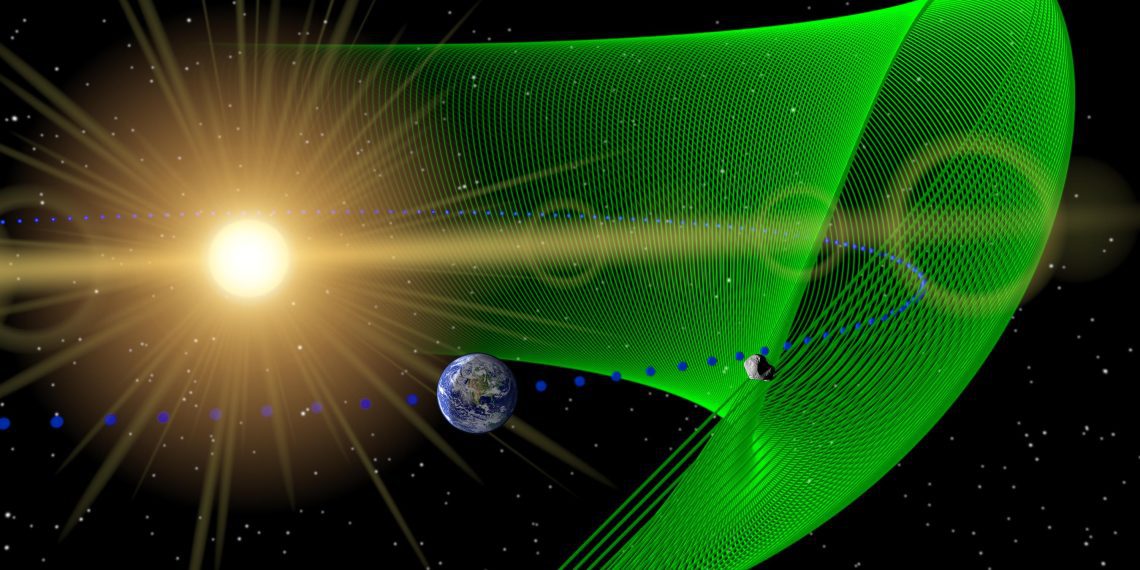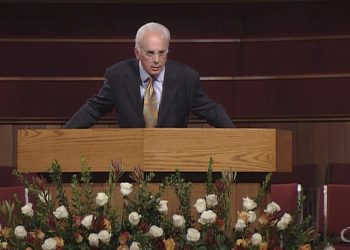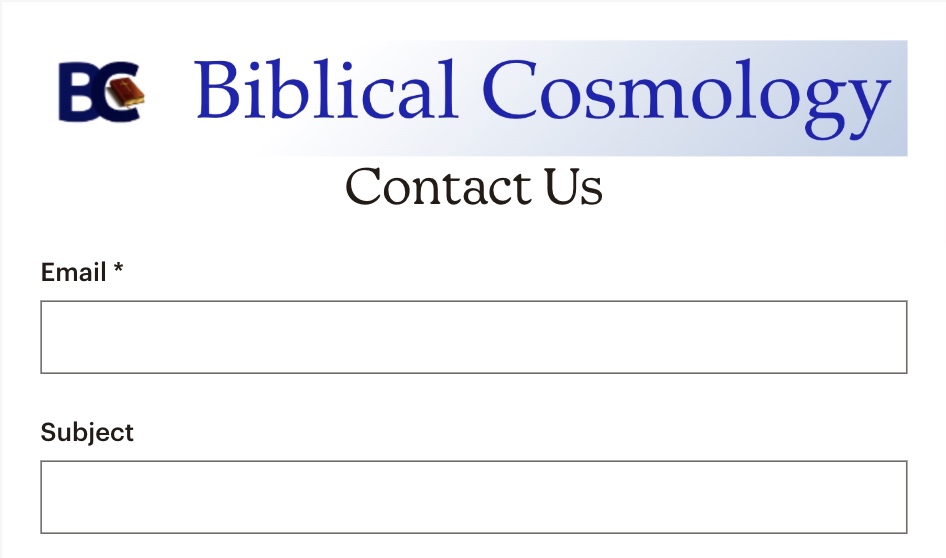Scientism has invaded American culture in a stunning pervasive way, and it has invaded the American church thoroughly, deeply, and created strongholds in which biblical truths have been polluted by subtle but dangerous lies. Christians, including sincere pastors, never saw the assault coming, and 99% still have no idea what scientism is or how it relates to the viral lies that have infected their understanding of the scriptures and God’s truths.
Most pastors still think they can differentiate scientism from science, or pseudo-science from science. Unfortunately, most think what is called science is true science, and most rationalize it is God’s science and consistent with the Bible when it is not. Many have adopted scientism as science. The deception is real, and it is in the pulpit.
What is scientism and is it really dangerous to the church and to christians? Scientism is a religion and a primary weapon of war used by Satan against God and God’s creation. Scientism has crept into the pulpits of churches around the world, into seminaries, into the theology of the world’s renowned theologians, and into the minds of christians everywhere.
A DEFINITION OF SCIENTISM
Scientism is an amalgam of true science, pseudo-science, philosophy, and theology masquerading as science, and despite the fact that scientism intentionally misrepresents the truth, it claims exclusive right to all truth in the world and the Universe. Scientism vitiates the scientific method which requires observation, a hypothesis, and testing, in that order, and is self-refuting since it requires its adherents to assent to beliefs that violate its own stated requirements for knowledge. Consequentially, scientism has become a political, economic, social, and spiritual force deconstructing the truths of the Bible, starting with God’s story of how he created the heavens and the earth in Genesis and twisting God’s revelation of himself all the way through the Bible to the very end in Revelation 22. The chief aim of scientism is to convince mankind that God does not exist.
“Scientism is the opinion that science and the scientific method are the best or only way to render truth about the world and reality.”1
You might think this quote is from a religious zealot, but it is from Wikipedia as are the following stunning admissions about scientism:
• Both religious and non-religious scholars have applied the term scientism to individuals associated with New Atheism. Theologian John Haught argued that philosopher Daniel Dennett and other New Atheists subscribe to a belief system of scientific naturalism, which includes the dogma that “only nature, including humans and our creations, is real: that God does not exist; and that science alone can give us complete and reliable knowledge of reality”.2
• Michael Shermer, founder of The Skeptics Society, discussed resemblances between scientism and traditional religions, indicating the cult of personality that develops for some scientists. He defined scientism as a worldview that encompasses natural explanations, eschews supernatural and paranormal speculations, and embraces empiricism and reason.
• The Iranian scholar Seyyed Hossein Nasr has stated that in the Western world, many will accept the ideology of modern science, not as “simple ordinary science”, but as a replacement for religion.
• Gregory R. Peterson wrote that “for many theologians and philosophers, scientism is among the greatest of intellectual sins”. Genetic biologist Austin L. Hughes wrote in the conservative journal The New Atlantis that scientism has much in common with superstition: “the stubborn insistence that something … has powers which no evidence supports.”3
Scientism in the Google Dictionary is defined as “excessive belief in the power of scientific knowledge and techniques.”
You might think that if pastors and theologians knew that the secular world’s definition of scientism openly states that it is embraced by atheists, that it trumps theology and rules over the Bible, and that scientism is built on the belief that there is no Creator God, the last thing they would do is adopt scientism and invite scientism into the pulpit. Yet they have enthusiastically.
Notice how the secular world of unbelievers describes scientism in an anti-biblical way:
• Scientism is an “opinion.”
• Scientism is the “only way to render truth about the world and reality.”
• Scientism is “associated with new atheism.”
• Scientism for theists believes that “only nature, including humans and our creations, are real, and that God does not exist.”
• Scientism argues “When it comes to facts, and explanations of facts, science is the only game in town.”
• Scientism “reduces knowledge to what can and cannot be proven by scientific procedure.”
• Scientism has been defined by Michael Shermer, founder of The Skeptics Society, “as a worldview that encompasses natural explanations, eschews supernatural and paranormal speculations, and embraces empiricism and reason.”
• Scientism has been explained “as a replacement for religion.”
• Scientism has much in common with superstition: “the stubborn insistence that something … has powers which no evidence supports.”4
SCIENTISM IS A CULTURAL FRAMEWORK
J.P. Morehead defines scientism this way in his excellent book entitled, Scientism and Secularism”:
Roughly, scientism is the view that the hard sciences—like chemistry, biology, physics, astronomy—provide the only genuine knowledge of reality. At the very least, this scientific knowledge is vastly superior to what we can know from any other discipline. Ethics and religion may be acceptable, but only if they are understood to be inherently subjective and regarded as private matters of opinion. According to scientism, the claim that ethical and religious conclusions can be just as factual as science, and therefore ought to be affirmed like scientific truths, may be a sign of bigotry and intolerance.5
Morehead points out, “To the extent that scientism is embraced in our culture, our moral and spiritual claims will be ‘de-cognitivized.’ In other words, our deepest beliefs about life, knowledge, history, and reality will seem to be utterly implausible—not just untrue, but unworthy of rational consideration.”6
The lesson here is that a culture, which has a set of background assumptions—or, a plausibility structure—sets a framework for what people think, which affects how they are willing to listen, evaluate, feel, and behave. The framework shapes what people consider plausible or implausible. For example, claims that the earth is flat are outside our plausibility structure.7
People are not typically even aware of how cultural maps affect them. But even though one’s cultural map contains crucial ideas that have shaped other beliefs, when the natural assumptions are brought to our attention, we often disown them. Today, the Western cultural plausibility structure emphasizes science and scorns religion.8
Christians must be taught not only what they believe but why they ought to believe it. This will especially involve exposing and undermining scientism, and dealing with issues relating to science and the Bible. Obviously, with glorious exceptions, the local church is a complete failure in this regard. We practice “ostrich Christianity”—we put our heads in the sand and hope that scientism will just go away and leave us alone.9
Scientism has invaded American churches, and God is calling pastors and teachers to wake up and recognize scientism as a false religion. Pastors must learn how they have been deceived, and how it has infected their interpretation of the scriptures. They have a duty to God, and they have a duty to their parishioners to preach the truth and nothing but the truth of the Word of God.
1 Source: Wikipedia at https://en.wikipedia.org/wiki/Scientism
2 “Haught argued that this belief system is self-refuting since it requires its adherents to assent to beliefs that violate its own stated requirements for knowledge. Christian philosopher Peter Williams argued in 2013 that it is only by conflating science with scientism that New Atheists feel qualified to “pontificate on metaphysical issues”.
3 Source: Wikipedia at https://en.wikipedia.org/wiki/Scientism
4 Genetic biologist Austin L. Hughes wrote this in the conservative journal The New Atlantis.
5 Moreland, J. P.. Scientism and Secularism (p. 26). Crossway. Kindle Edition.
6 Ibid., 31-32.
7 Ibid., 32.
8 Ibid., 33.
9 Ibid., 39).







